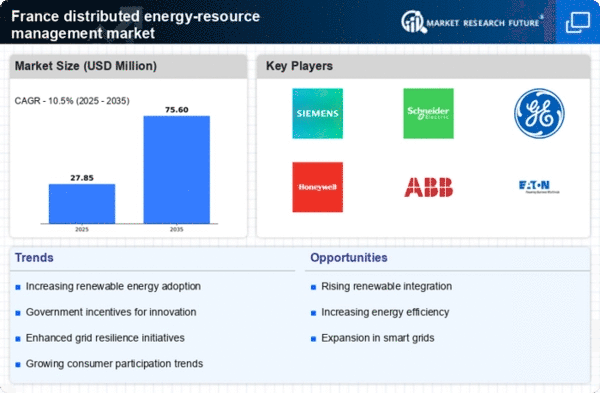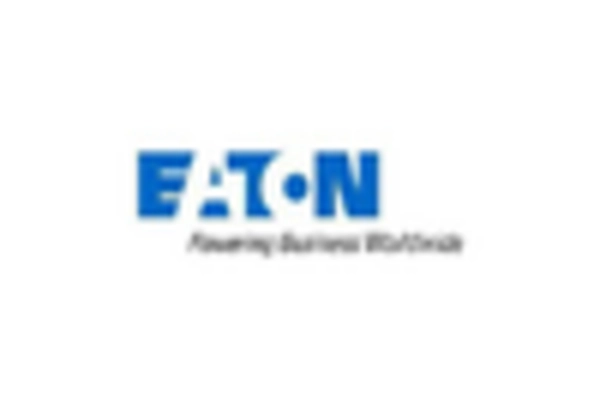Rising Environmental Awareness
Rising environmental awareness among the French population is a crucial driver for the distributed energy-resource-management market. As climate change concerns escalate, consumers are increasingly motivated to adopt sustainable energy practices. This shift is reflected in the growing number of households and businesses investing in renewable energy technologies. In 2025, surveys indicate that over 60% of French citizens prioritize eco-friendly energy solutions, which is likely to propel the distributed energy-resource-management market forward. This trend suggests a cultural shift towards sustainability, influencing both consumer behavior and policy decisions.
Supportive Government Initiatives
Supportive government initiatives play a vital role in shaping the distributed energy-resource-management market in France. The French government has implemented various policies aimed at promoting renewable energy and energy efficiency. These initiatives include financial incentives for adopting distributed energy resources and regulatory frameworks that facilitate their integration into the energy grid. By 2025, it is anticipated that government funding for renewable energy projects will exceed €1 billion, further stimulating market growth. Such support not only encourages investment but also fosters innovation within the distributed energy-resource-management market, creating a favorable environment for new technologies.
Growing Demand for Energy Independence
The increasing desire for energy independence among consumers and businesses in France is driving the distributed energy-resource-management market. As energy prices fluctuate, stakeholders are seeking ways to reduce reliance on traditional energy sources. This trend is particularly evident in rural areas where access to centralized energy grids may be limited. the distributed energy-resource management market offers solutions that empower users to generate and manage their own energy, potentially leading to cost savings.. In 2025, it is estimated that approximately 30% of households in France will utilize some form of distributed energy resource, indicating a significant shift towards self-sufficiency in energy consumption.
Integration of Smart Grid Technologies
The integration of smart grid technologies is a pivotal driver for the distributed energy-resource-management market in France. Smart grids facilitate real-time communication between energy producers and consumers, enhancing the efficiency of energy distribution. This technology allows for better management of energy loads and the incorporation of renewable energy sources. In 2025, the French government aims to have 50% of its energy infrastructure equipped with smart grid capabilities, which could lead to a more resilient energy system. The distributed energy-resource-management market stands to benefit from this transition, as it aligns with the growing need for advanced energy management solutions.
Increased Investment in Energy Storage Solutions
Investment in energy storage solutions is rapidly increasing, significantly impacting the distributed energy-resource-management market. As renewable energy sources like solar and wind become more prevalent, the need for effective storage systems to manage energy supply and demand is critical. In France, the energy storage market is projected to grow by 40% annually through 2025, driven by both private and public sector investments. This growth indicates a robust demand for technologies that can store excess energy generated during peak production times, thereby enhancing the reliability and efficiency of distributed energy systems.
















